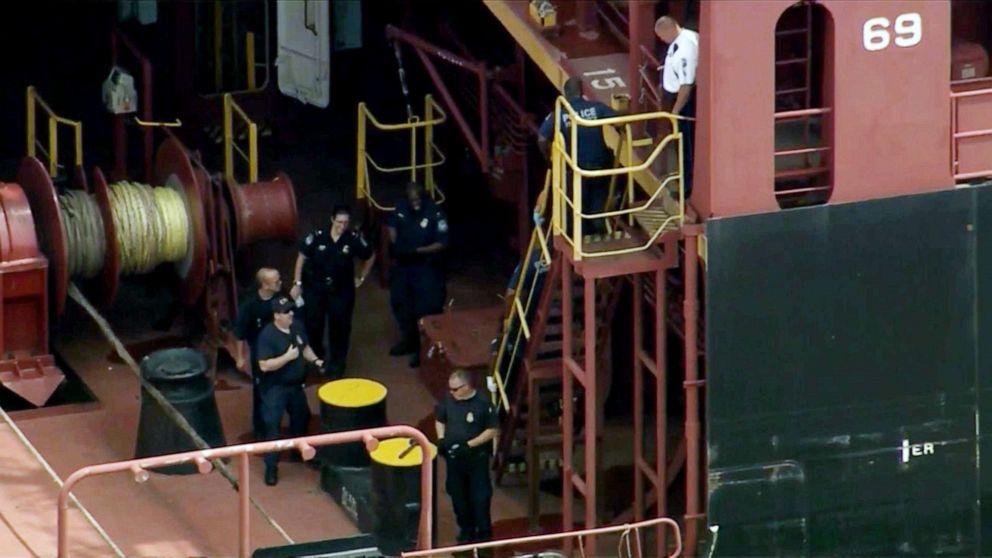New details in $1 billion drug bust show how smugglers snuck 16.5 tons of cocaine onto cargo ship
It wasn’t until after a swarm of agents from the U.S. Coast Guard, the U.S. Department of Homeland Security and three separate police agencies had boarded the MSC Gayane and swabbed the second mate's arms and hands and the test came back positive for traces of cocaine that he started talking, according to a criminal complaint -- but the story he told was compelling.
Investigators said he explained how you sneak 16.5 tons of cocaine onto a cargo ship.
In the criminal complaint filed after Tuesday's historic $1 billion cocaine seizure, MSC Gayne second mate Ivan Durasevidc said he was told by the ship's chief officer to come down to the deck after the ship had departed Peru.
Durasevidc told investigators that he saw nets near the ship's crane that contained bags with handles for transporting the cocaine, and that he and about four others -- some wearing ski masks that obscured their faces -- hoisted the bags onto the ship and loaded them into containers after being promised by the chief officer that he would be paid $50,000, according to the complaint.
Crew member Fonofaavae Tiasaga also told authorities that he assisted in loading bales of cocaine that were brought alongside the ship by smaller boats both before and after they docked in Peru.

Tiasaga allegedly said this wasn’t the first time he helped smuggle narcotics. The crew member said that on a previous voyage, Durasevidc paid him 50,000 euros to help “load large quantities of cocaine” onto the vessel, according to the complaint.
Tiasaga also told authorities that on an earlier stretch of the most recent trip, at least six boats approached the MSC Gayane during the voyage between Chile and Panama and delivered bales of cocaine, which were hoisted onto the Gayane with a crane that was operated by Durasevidc. The boats also delivered replacement seals to reseal the shipping containers on the Gayane, Tiasaga told investigators.
Eight more boats approached the Gayane between Peru and Panama, according to the complaint, and delivered more bales of cocaine. The bales were then taken below deck by Tiasaga and other crew members and secreted in the shipping containers, which were subsequently resealed, according to officials.
By the time all the operations were complete, officials said, $1 billion worth of cocaine was secured, secreted and headed to Philadelphia, where it was ultimately seized and impounded.
It was not immediately clear whether Durasevidc or Tiasaga had retained defense attorneys.
ABC News' Aaron Katersky, Alexander Mallin and Jack Date contributed to this report.



